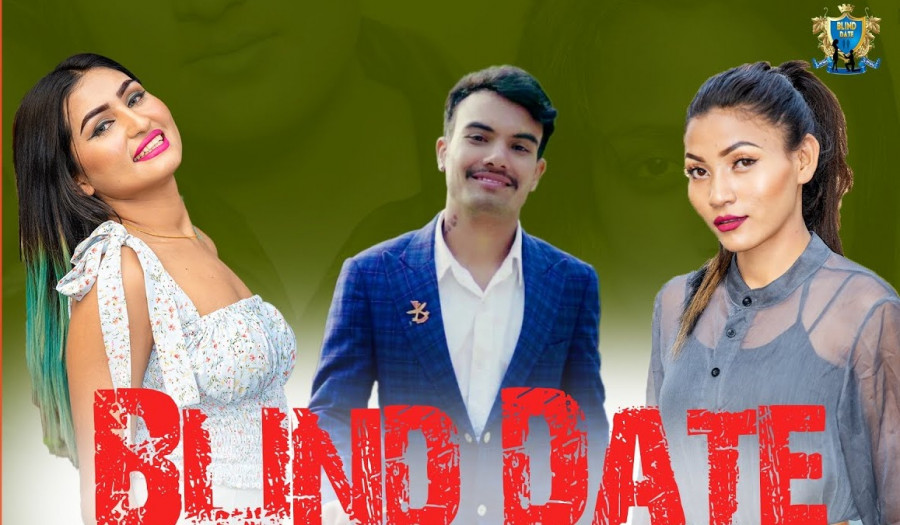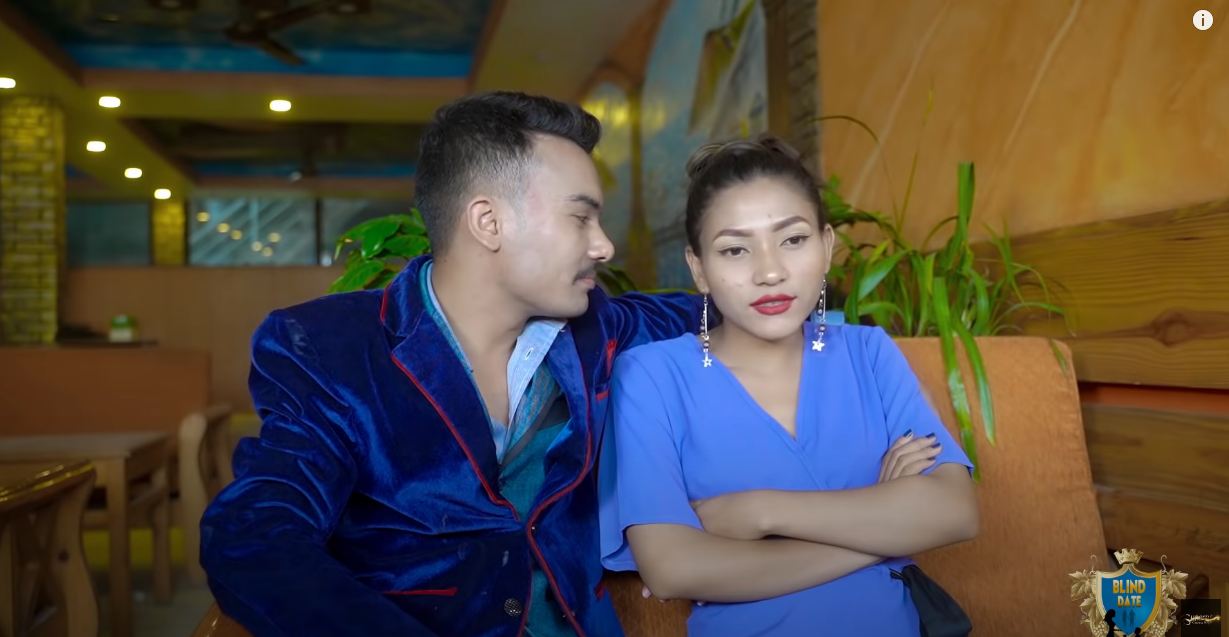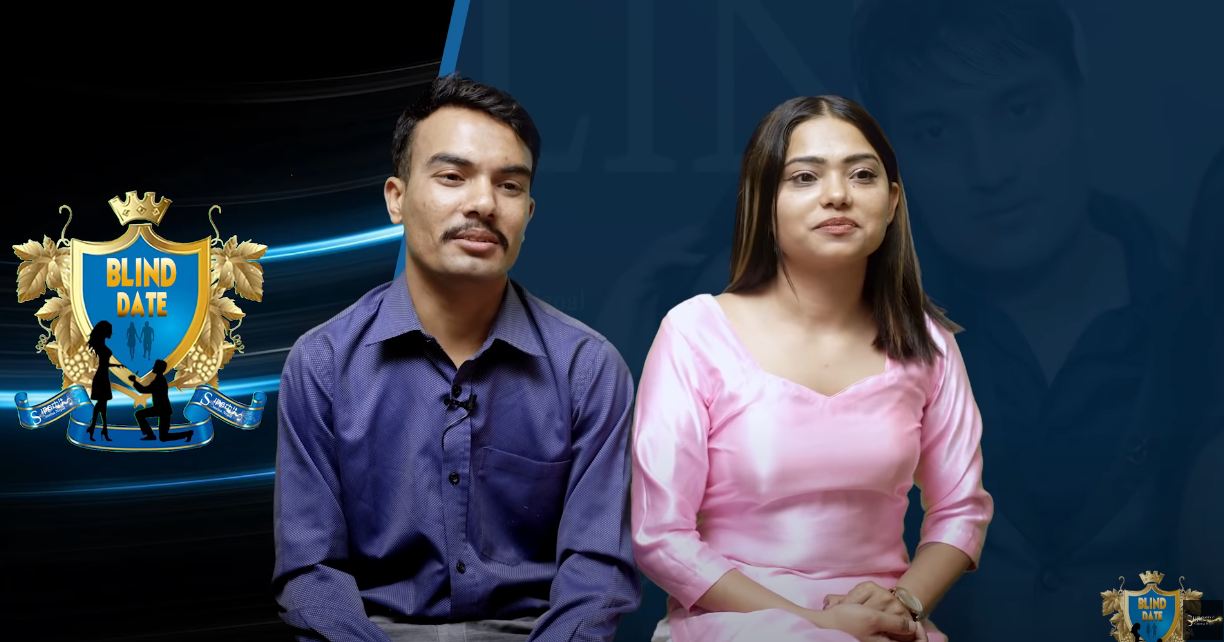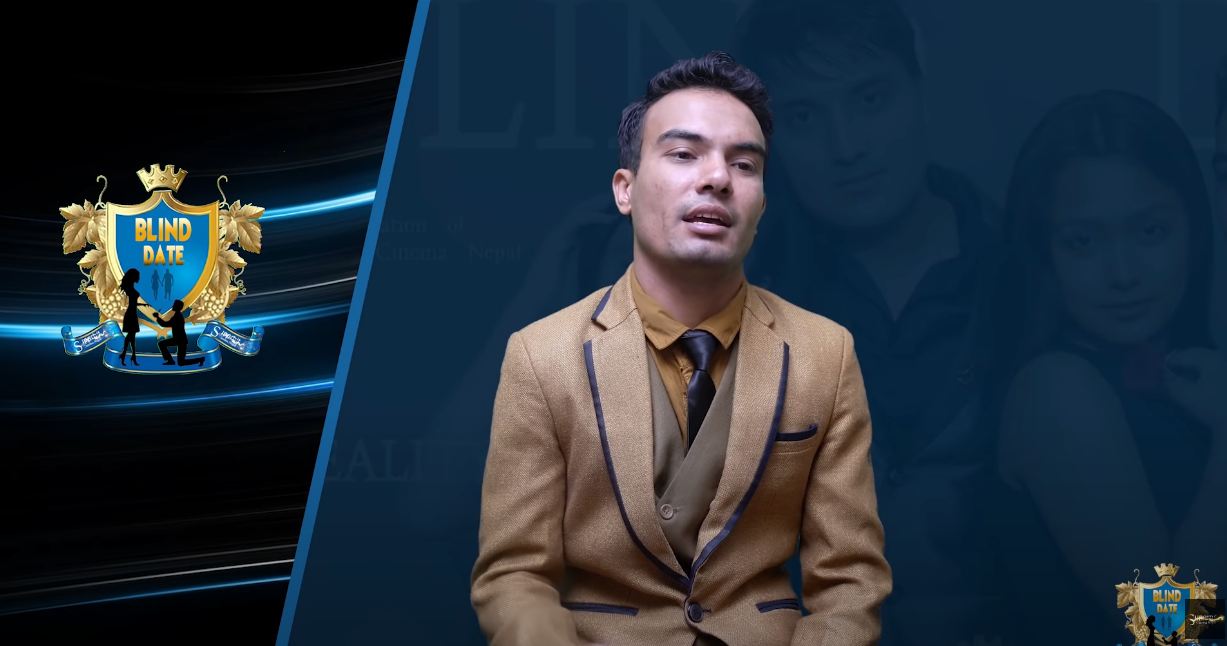Hugely problematic and superficial for many, Blind date, a Nepali dating reality show, has earned an equal number of admirers and haters.
By The Kathmandu Post

At 7 pm every Friday, Pratikshya Adhikari drops everything she is doing to watch the latest episode of Blind Date on YouTube.
“I find Blind Date really funny and I love watching the show. The show allows me to see people that I don’t know but live in the very society I am part of,” says Adhikari, 23, a student of psychology. She says she has been religiously following the show since its pilot episode was released on February 24 this year.
The phenomenon of watching reality shows is not new in Nepal. The success of Nepali reality shows such as ‘Ko Bancha Crorepati’, ‘Himalayan Roadies’, ‘Dancing with the Stars’, ‘Nepal Idol’, ‘The Voice’, ‘Comedy Champion’, etc, have paved the way for the genre of television in the Nepali landscape to grow. However, the majority of the reality shows in the country have been made with big investments, featured well-known celebrities and had major production houses backing them.
And then in February this year, in the midst of the pandemic, came Blind Date, a YouTube-based dating reality show. Created by a relatively unknown production house with no major celebrities, the show has become one of the most popular reality shows of recent times. So far, twenty-six episodes of the show have been released on its YouTube channel, and each episode easily gets more than 200,000 views within a day of release, making the show a huge success. And there are thousands like Adhikari who eagerly wait every week for the show’s makers to release new episodes.
Blind Date’s concept is very simple: five boys and five girls, all with different personalities, go on blind dates set up by the show’s producers. They meet, talk about each other’s interests, likes and dislikes. Sometimes they even fight and say problematic and inappropriate things to each other.
On February 14, when the makers of the show released the show’s teaser on YouTube, the video quickly went viral, and when the first episode was released a few days later, everyone was surprised with the content. It became the first Nepali reality show that was unabashedly ‘trashy’ and ‘corny’ and featured ordinary people. The show quickly managed to get the attention of people, many of whom were just excited to see such reality shows in Nepal as well.

Photo courtesy: Super Hit Cinema Nepal
“When I watched the show for the first time, I laughed out loud. Like everyone, I got hooked to the show very quickly,” says Roji Maharjan, a counselling psychologist, who watches the show on a regular basis. “For someone used to watching Indian and American reality shows, Blind Date was like a breath of fresh air and it felt familiar and got me immediately interested.
According to Sudhamshu Dahal, coordinator of Media Studies at Kathmandu University of School of Arts, one of the main reasons behind the show’s burgeoning popularity is its subject matter.
“Across the world, taboo subjects always sell in the media. And that’s exactly what the makers of the show did with the show. They centred the show around taboo subjects,” says Sudhamshu, an expert on new media and information technology and communication.
In the show, the contestants, a girl and a boy, usually meet in a restaurant. However, unlike most real-life blind dates, the contestants of the show, rather than take things slowly, talk about marriage, each other’s personal issues, and some even make personal and offensive remarks to each other.
Content aside, the makers of Blind Date, says Sudhamshu, have given no importance to the show’s aesthetics and technical details.
“From costumes to aesthetics, the makers haven’t given much attention to many elements of the show,” he says.
Despite the show’s many shortcomings, it is still watched and enjoyed by many.
So what makes the show so popular that it has been able to attract viewers consistently?
According to Maharjan, one of the reasons behind the show’s popularity is the fear of missing out (FOMO) phenomenon. Every week as new episodes get uploaded, social media is flooded with reaction videos and memes on the episodes, and viewers start discussing about the show as well. And for those who haven’t seen the latest episodes, it becomes mandatory for them to watch even if it’s just to interact with friends who watch the show.
“Psychologically speaking, human beings love to gossip,” says Maharjan. “And for many, Blind Date has somehow managed to become a topic of gossip and those who don’t watch the show feel left out and thus become compelled to watch it,” she adds.
Another reason for the show’s popularity, believes Maharjan, is because the show is fun to watch.
“Many of the things that have so far happened in the show don’t usually happen in real-life situations. Most of the time, the show’s contestants are doing ridiculous and funny things, which we would normally hesitate to do in real life. So, when we watch the show, we are vicariously living through the experience of the contestants. It’s a fun show to watch, and when people watch such shows, their brain releases happy hormones like dopamine, endorphins, oxytocin, and serotonin, which we enjoy.”

Photo courtesy: Super Hit Cinema Nepal
For 23-year-old Pasang Dorjee, a student, the reason that led him to watch the show was because he found it too bad.
“The best way to put it would be that the show is so bad that it’s good. I think people are drawn to the show because of how absurd and ridiculous the characters are,” he says.
Sudhamshu believes that the makers of Blind Date purposely made the show ‘bad’ with the lowest common denominators to attract a certain type of viewer.
“They are very well aware of what the audience likes and have carefully designed the show in such a way that it connects with the audience,” says Sudhamshu.“The makers also seem to know too well how to promote the show for their target audience. Since the show is on YouTube and not on any national TV channel, this has helped the makers to show what they intend to and evade censorship.”
Many viewers also believe that the show is scripted but the makers strongly deny it. The views expressed and the actions of the show’s contestants are of the individuals involved, says Roshan Dahal, the creator, director and also producer of the show.
“As makers of the show, we just take our cameras and shoot the contestants’ dates. But we also make sure they are comfortable and only show things they are okay with,” says Roshan, who’s one of the owners of Super Hit Cinema Nepal, the production house behind Blind Date.
Before making Blind Date, Roshan was already making music videos, shooting wedding videos and many other video contents.
“My years of making video contents, many of which have gone viral, have given me insights on what it takes to make viral videos,” says Roshan.
Majority of the show’s viewers the Post spoke with say that the contestants are the show’s backbone and that they are the reason they watch the show.
“One of my favourite contestants is Shilu Pokhrel because she is unapologetically herself. At first, Shilu did come off as extremely blunt, narcissistic and infuriatingly loud. But as the show progressed, it was kind of interesting to watch her not take any crap from other people,” says Dorjee.
But there are also many viewers like 25-year-old Rachana Kharel, who find some of the show’s contestants and their actions downright problematic.
“I like the show’s concept but I also have a lot of issues with the content. The way participants constantly shame their dates based on height, skin colour, financial status, age, etc, are some of the things I find problematic,” says Kharel, a teacher and a regular viewer of the show.

Photo courtesy: Super Hit Cinema Nepal
In one of the show’s earlier episodes, Deven Raj Pandey, the show’s most popular male contestant, was shown making offensive remarks that made his date uncomfortable. Likewise, in many other episodes, aggressive and toxic traits have been normalised, and often, contestants are seen throwing water at each other and sometimes even abusing and objectifying women, who are often presented as gold diggers in the show.
“I think the makers are trying to impose their patriarchal mindset on the show. The show’s female contestants are shown as gold diggers or money-minded people. I find these representations difficult to accept,” says Kharel.
Sudhamshu agrees with Kharel on the subject. According to him, the show reinforces many misogynistic and problematic views, and with the kind of fame the show has received, he says that it’s important to critically analyse it.
“The show, in many ways, endorses chauvinistic behaviours. And with the kind of controversial content the show explores, one has to think if it plays any role in normalising discriminatory practices off-screen,” says Sudhamshu.
But not all viewers believe that the show should be taken seriously.
“Yes, there are few characters that are problematic. But I don’t think we should take it so seriously because many people just watch it for fun. I think everyone knows that the show is scripted and does not take the show seriously,” says Adhikari.
Whether people like the show or not, one thing that’s clear is that it’s hard to ignore the show, given how popular it has become.
“People have liked our work,” says Roshan. “We have more plans to make similar kinds of shows in the future and we are even planning to make season 2 of Blind Date.”












